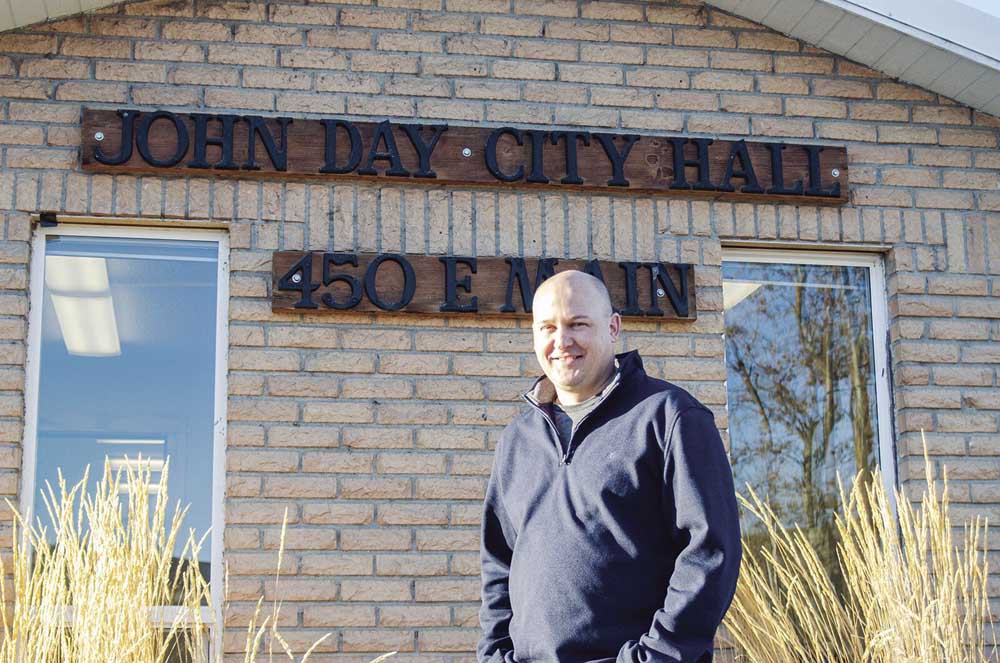Mill owner surveys uncertain future
Published 5:00 pm Tuesday, August 13, 2002
JOHN DAY – D.R. Johnson, owner of ranch and timber operations across Oregon, received an eyeful of every timber producer’s nightmare late last month. During a helicopter flight from Wallowa to John Day on July 24, he watched forest fires rage in the heavy timber below.
“I’m really upset,” he said, referring to environmental appeals and litigation which he blames for the fuels buildup and resulting high-intensity fires on federal forests. “But we can’t back up and do it over again.”
Johnson’s timber purchases have faced numerous appeals and lawsuits themselves, including the recently injoined Hash Rock Salvage Sale on the Ochoco National Forest. He mused, “We’ve run through some terrible times in the last couple of years.”
Johnson seemed both subdued and determined during a July 25 interview. Whether voicing high praise for firefighters now battling the region’s blazes or reflecting on the wood products industry of which he has been a part for more than 50 years, Johnson offered an outlook of optimism.
“I like what we do. I like the communities. I like the people,” Johnson said, explaining his longevity in the industry.
D.R. Johnson Lumber Co. criss-crosses the state of Oregon. There are his eastern and northeastern Oregon stud mills, Prairie Wood Products in Prairie City and Wallowa Forest Products in Wallowa; a dimension lumber plant, Grant Western Lumber Co., in John Day; and the Co-Gen wood-burning plant in Prairie City, which generates electricity and provides a critical use for the waste material the mills accumulate.
Johnson also owns three Riddle-based operations – a wood manufacturing operation, the self-named D.R. Johnson Lumber Co.; Riddle Laminators, which specializes in glue-lam beams; and Umpqua Lumber Co., another stud mill. Johnson also grows timber on 4J Ranches, a collection of ranch properties primarily suited for commercial beef and buffalo production located in Spray, Seneca and Crane.
Johnson recently acquired a mill operation in North Powder, near Baker City, but he wasn’t sure when that might start.
“There’s not enough to go around now,” he said of the log supply.
Grant Western, Prairie Wood Products and Wallowa Forest Products all run two shifts – a positive financial infusion for the two counties’ struggling economies. However, Johnson acknowledged that forecasting timber supply and international markets can be precarious.
“We don’t know what’s going to happen next month,” he admitted.
Timber purchasers earn their pay with the company. Of Wallowa Forest Products, Johnson said, “They keep pulling rabbits out of the hat, just like they have here” in Grant County.
Johnson said he has spent millions of dollars to retool his mills for smaller-diameter wood. He holds out hope for salvage sales and a trickle-down benefit from newly enacted, 29 percent tariffs on Canadian wood imports.
“I look into the future. Homes are the most important investment a person can make today,” Johnson reflected.
Demand for wood products should remain strong, he argued. However, the North American Free Trade Agreement and other “free-trade” pacts have undercut American businesses, he said.
“We can’t compete against the world today,” he said.
Ochoco Lumber Co., owner of Malheur Lumber Co. in John Day, recently made national headlines by importing pine logs from New Zealand for processing in John Day. The company hopes to test the marketability of New Zealand wood in an effort to revive its idled operation in Prineville.
Johnson voiced reservations about exploring foreign suppliers.
“I’m not here to say they can’t do it,” he said. “I know of a dozen mills that have tried it and tested it, and have not gone on with it.”
Johnson faces his own challenges with hauling logs from afar. Mills such as Prairie Wood Products have become accustomed to long-distance log hauls from places such as Canada and Washington state’s Yakima Indian Reservation. Johnson said slumping lumber prices have put a pinch on this practice.
A critical link in the company’s chain of operations is the Prairie City-based Co-Gen plant. Johnson’s contract to sell power to Oregon Trail Electric Cooperative may be renegotiated or farmed out to a different buyer.
“It’s true our contract will be finished in 2005, but I’m confident we can negotiate a new contract,” Johnson said.





